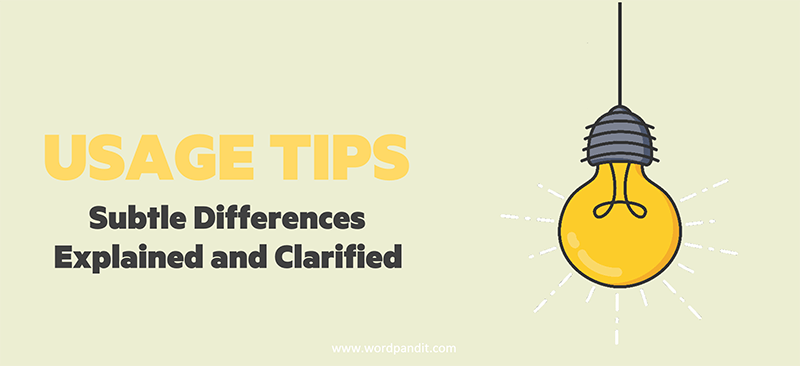Federation vs. Confederation: Understanding the Difference 🌍🤝
Imagine you’re reading about different countries forming alliances 🌐, and you come across the terms federation and confederation. You might think, “Aren’t they basically the same?” 🤔 Well, not quite! These terms often create confusion 😵, but they have distinct meanings that shape how countries or states interact 🌍. Understanding the difference between them is essential if you want to grasp how political entities organize themselves 🏛️ and cooperate 🤝. Let’s dive into their differences in a way that’s easy to understand—and maybe even a bit fun! 🎉
What Do They Mean? 🤷♂️
Federation 🏢: A federation is a political entity characterized by a union of partially self-governing states or regions under a central government 🏛️. In a federation, the central authority holds significant power 💪, but the individual states still have some autonomy 🌱. Think of it like a strong core 💪 that binds together the members, ensuring that there is unity 🤗, but also allowing each member to maintain some level of independence 🌿. Federations are designed to balance ⚖️ power between the central authority and the regional governments 🏠, creating a system where both levels have clearly defined roles and responsibilities 📜.
Confederation 🏘️: A confederation, on the other hand ✋, is more like a loose alliance 🤝. Member states come together for certain purposes—like defense 🛡️ or trade 💱—but maintain their own sovereignty 👑. The central body in a confederation has very limited power 🚫, and the individual states are the ones calling most of the shots 🎯. Confederations are often formed when independent entities want to cooperate while still retaining as much control as possible over their internal affairs 🔒. This setup allows the member states to work together on specific issues without giving up their independence ✨.
Pronunciation 🗣️
- Federation: fed-uh-RAY-shun 👩🏫
- Confederation: kuhn-fed-uh-RAY-shun 🧑🛡️
Learning to pronounce these words correctly can help you remember their distinct meanings 🧠. The subtle differences in pronunciation reflect the subtle differences in their definitions 📖.
A Quick Etymology Tour 🚀
Federation comes from the Latin word foedus, meaning “covenant” or “treaty” 📜. This origin emphasizes the idea of a formal agreement that binds different regions or states together under a shared authority 🤝.
Confederation is derived from the Latin confoederatio, which essentially means “union” or “league” ⚽. The focus here is on the idea of a group coming together for a specific purpose, without necessarily forming a strong, centralized authority 🏢.
These origins tell us a lot 💡: a federation is a union bound by strong ties and a formal agreement 🔗, while a confederation is more about maintaining independence while cooperating on specific matters 🌿. Understanding these roots can help clarify why these two terms are used differently in political contexts 🏛️.
Examples to Remember 📚
The United States of America 🇺🇸 is a federation: it has a strong central government 🏛️, but individual states like California and Texas still have their own laws 📜. The federal government has the power to make decisions on national issues, while states manage local matters 🏠.
The European Union 🇪🇺 started as a confederation: member countries agreed to cooperate on trade 💱 and some other issues but maintained their own governance 👑. Over time, the EU has moved closer to a federation, but it still retains many characteristics of a confederation, with member states holding significant power over their own affairs 🔒.
Synonyms and Antonyms 🔄
- Federation: Synonyms include union 🤗, alliance 🤝, and association 🔗. Antonyms could be disunion ✂️ or independence 🌿. These synonyms emphasize the strength of the central authority 💪 and the unity among member states 🤝.
- Confederation: Synonyms include league ⚽, coalition 🛡️, and alliance 🤝. Antonyms might be federation 🏢 or centralization 🏙️. The emphasis here is on cooperation without surrendering sovereignty 👑, highlighting the loose nature of the relationship 🌿.
How Are They Different? ❓
Think of a federation as a marriage 💍 where both partners agree to make decisions together and share responsibilities—but also have their own hobbies and interests 🎨. A confederation, meanwhile, is more like a group of friends who decide to share a Netflix subscription 🎥: they cooperate for a shared benefit but maintain their independence in most other areas 👫. This analogy helps illustrate the difference in how power and responsibilities are distributed ⚖️.
In a federation, the central government is strong 💪 and holds considerable power over the states or regions 🏠. It makes decisions on matters such as defense 🛡️, foreign policy 🌍, and national laws 📜. The states, while having their own local governments 🏘️, must follow the central authority’s lead on these overarching issues 📢. In a confederation, the member states retain most of their power 🔒, and the central authority has minimal control 🚫. The central body might coordinate defense 🛡️ or trade 💱, but it does so with the consent of the member states 👍, which can choose to opt out of certain decisions ❌.
Contextual Usage 📝
“Canada 🇨🇦 is a federation where the provinces share power with the national government 🏢. Each province has its own authority over local matters 🏠, but the federal government handles national concerns like defense 🛡️ and foreign policy 🌍.”
“The Swiss Confederacy 🇨🇭 started as a confederation, with each canton keeping significant control over its own affairs 👑. This allowed the different regions to maintain their unique identities while cooperating for mutual benefit 🌍.”
Mnemonic Device 🧠
To help you remember 💡: A federation feels like “firmly together” 💪 (stronger central government), while a confederation feels like “confused union” 🤷♂️ (a looser structure with more independence 🌿). Another way to think of it is that a federation has a firm foundation 🔒 (strong central authority), whereas a confederation is more casual in its cooperation 🤗.
Related Words 🔗
You might also be interested in related words like union 🤗, alliance 🤝, and coalition 🛡️. They all reflect various levels of cooperation and unity 🤝 but differ in how much autonomy individual members retain 🌿. For instance, a union might imply a more integrated structure like a federation 🏢, whereas an alliance or coalition is often more temporary ⏳ and closer to a confederation in nature 🏘️.
Wrap-Up 🎯
So there you have it—federation 🏢 and confederation 🏘️ may seem similar, but they represent very different ways of organizing states or regions 🌍. In a federation, the focus is on unity 🤗 and shared power with a strong central government 💪 that can make binding decisions for all member states 📝. In a confederation, independence reigns supreme 👑, with a central body that has limited authority 🚫 and acts mainly as a coordinator for specific activities like defense 🛡️ or trade 💱.
The next time you read about international politics 🌐, you’ll know whether countries are closely tied in a federation 🏢 or just loosely working together in a confederation 🏘️. Understanding these distinctions can give you greater insight into how different political systems operate ⚖️ and why they function the way they do 🤔. Now, let’s test your new knowledge! 📝
Test Your Knowledge: Federation vs. Confederation
1. The countries agreed to form a ___ to maintain peace 🕊️ and cooperate economically 💰.
2. Switzerland 🇨🇭 started as a ___ before becoming a more unified country 🏞️.
3. A confederation has a strong central authority 🏛️.
4. Which word is synonymous with ‘Alliance’ 🤝?
5. The provinces decided to form a ___ to collectively negotiate trade 🚢 with neighboring countries.
6. Which entity typically has a weaker central authority and grants more autonomy to its member states 🌍?
7. While the states retained much of their independence 🏞️, they agreed to form a ___ for mutual defense 🛡️.
8. Which word has its origins in Latin meaning ‘covenant’ 📜?
9. The word ‘federation’ can be used to describe a loose alliance between independent states 🌐.
10. The regions decided to form a __, keeping their sovereignty 🏰 while agreeing on common defense policies ⚔️.













